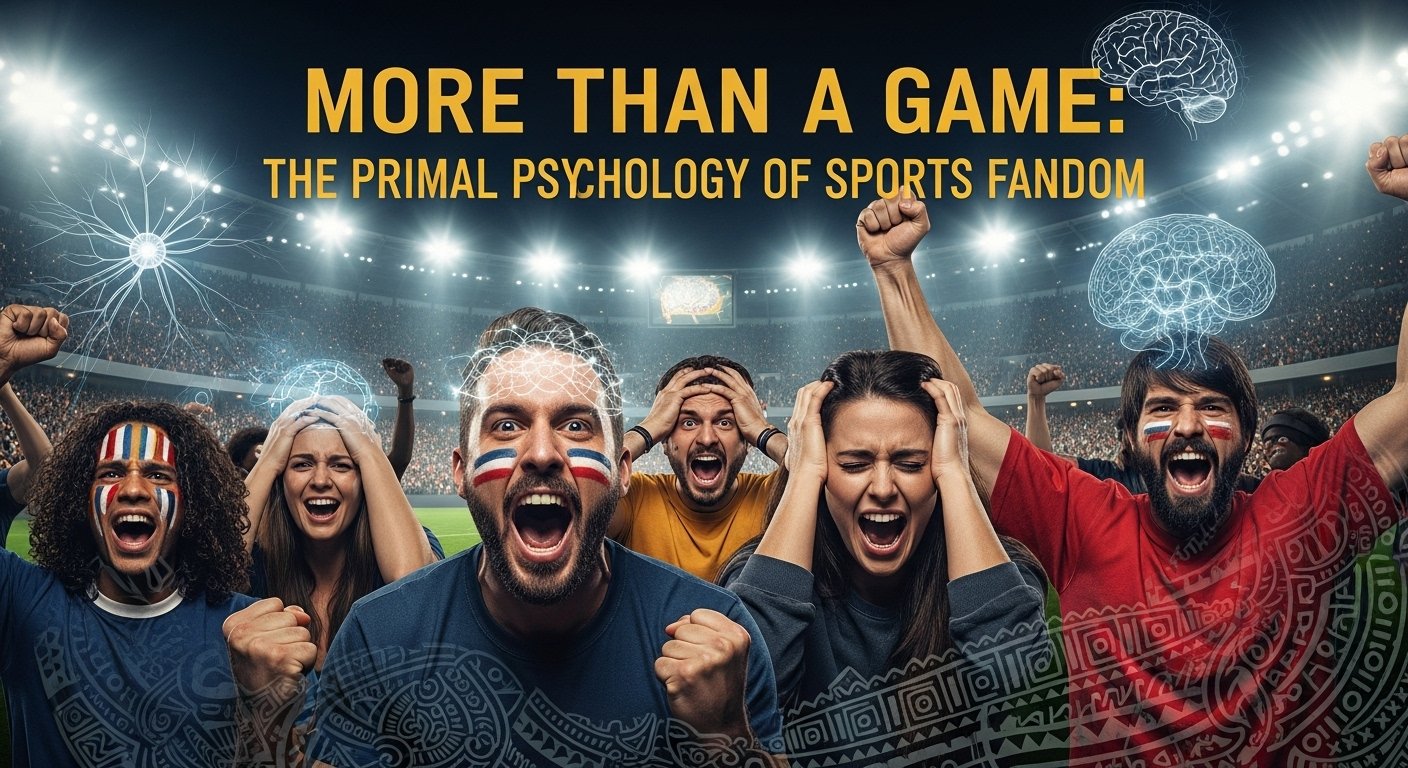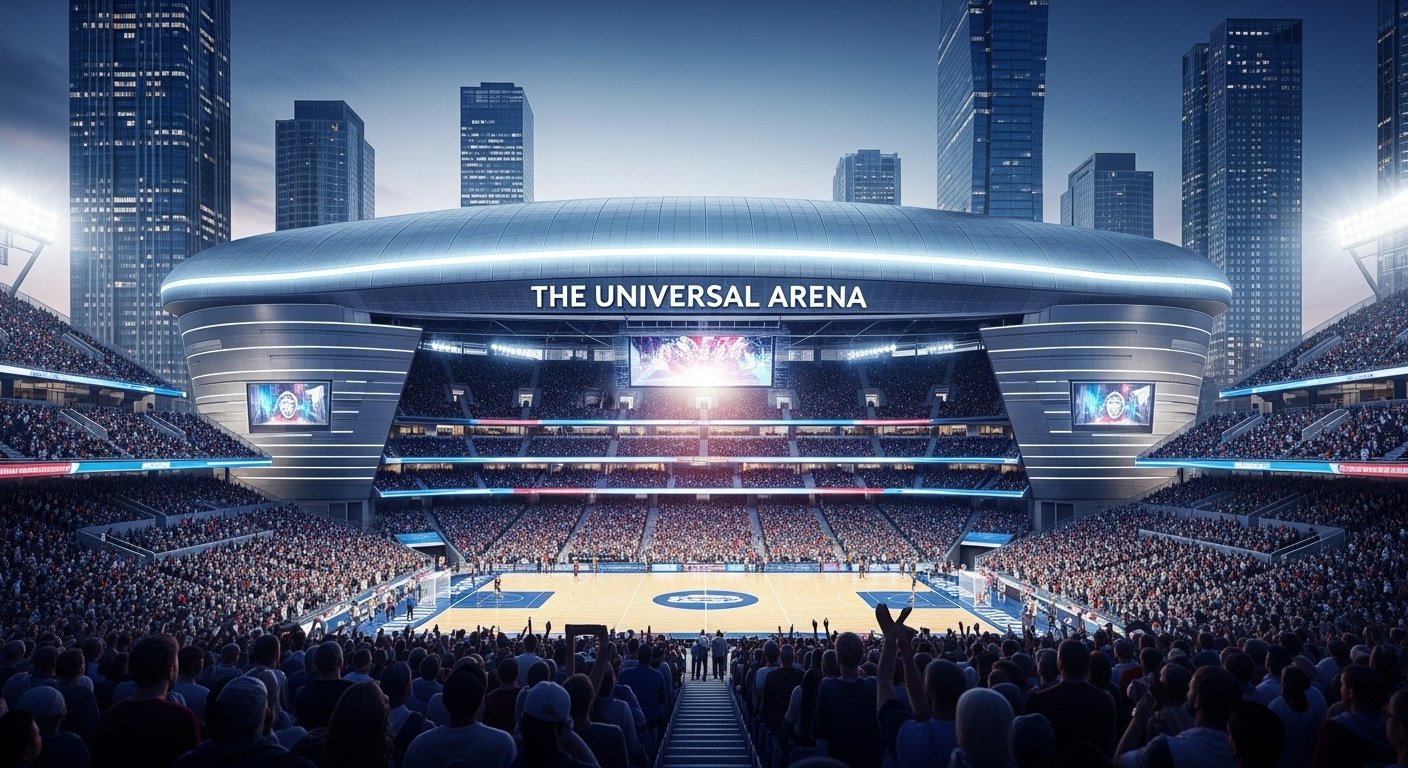A grown man weeps with unbridled joy as his team hoists a championship trophy. A child on one continent wears the jersey of a hero from another, a player they will never meet. A bar full of strangers erupts into a unified, ecstatic embrace after a last-second goal. These scenes, replicated in every corner of the world, beg a fundamental question: why do we care so much about the outcome of a game played by others? The answer lies far deeper than simple entertainment. Sports fandom is not a frivolous hobby; it is a powerful expression of some of our most basic psychological and evolutionary instincts.
Our intense emotional investment in sports is a product of our primal need for tribal identity, our capacity for vicarious achievement through heroes, our innate love of narrative, and a potent cocktail of biological responses. To understand fandom is to understand the very wiring of the human mind.
The Tribal Instinct: The Power of “Us”
At our core, humans are tribal creatures. For millennia, our survival depended on our allegiance to a group. Belonging meant safety, identity, and a shared purpose. In the modern world, with its complex and often isolating societies, a sports team serves as a powerful and accessible modern tribe. The colors, logos, and jerseys are our contemporary tribal markings, creating an instant visual bond with fellow supporters and a clear demarcation from rivals.
This connection is explained by a key concept in social psychology: Basking in Reflected Glory (BIRGing). When the team wins, fans don’t say “they won”; they say “we won.” This linguistic tic reveals a deep psychological truth: we internalize the team’s success as our own. A victory provides a direct boost to our self-esteem and a validation of our tribal identity. The flip side is also true. When a team loses, fans are more likely to distance themselves, a phenomenon known as Cutting Off Reflected Failure (CORFing)—suddenly, “they lost the game.” This powerful dynamic of identification is the bedrock upon which the entire edifice of sports fandom is built.
The Hero’s Journey: A Vicarious Triumph
Beyond belonging to the tribe, we are drawn to the heroes who represent it. Elite athletes embody archetypal qualities we admire: extraordinary skill, unwavering dedication, resilience in the face of adversity, and grace under pressure. They live out a version of the classic hero’s journey, and through them, we experience it as well.
This is not just imagination; it has a neurological basis. Our brains are equipped with “mirror neurons,” which fire not only when we perform an action, but also when we observe someone else performing that same action. When we watch a supremely skilled athlete execute a perfect play, our brains light up in a way that simulates the action, creating a profound sense of empathetic connection. We vicariously feel the triumph, the skill, and the victory. This allows for a powerful form of escapism, letting us transcend the routines of our own lives and participate, on a neural level, in moments of human excellence.
The Unscripted Drama: A Hunger for Narrative
The human brain is wired for narrative. We make sense of the world by organizing events into stories with characters, conflict, rising action, a climax, and a resolution. A sports season is a perfect, unscripted drama that provides this in spades.
Our team serves as the protagonist, while rival teams are the antagonists. The regular season is the rising action, full of unexpected plot twists like injuries, underdog victories, and stunning collapses. The playoffs are the climax, and the championship game is the final, dramatic resolution. Unlike a scripted film or novel, the outcome is genuinely unknown. This uncertainty is what creates the immense tension and deep emotional investment that makes sports so compelling. The emotional investment of a fan can be seen as a product of these forces:
Einvest=(Narc×Uoutcome)+Itribal
Where the Emotional Investment (Einvest) is a function of the season’s Narrative Arc (Narc) multiplied by the Uncertainty of the Outcome (Uoutcome), all amplified by the fan’s underlying Tribal Identity (Itribal). Because the story is real and its ending is unwritten, the emotional payoff of a victory is exponentially greater than that of any fictional tale.
The Biological Cocktail: The Fan’s Brain on Sports
Our deep connection to sports is not just psychological; it is profoundly biological. Watching a tense game triggers a powerful cascade of hormones that mirrors the physiological experience of a participant.
The anticipation of a potential victory releases dopamine, the neurotransmitter associated with reward and pleasure, making the experience highly motivating and, at times, addictive. The stress and tension of a close contest flood the body with cortisol and adrenaline, creating a state of high arousal—the racing heart, the sweaty palms, the feeling of being acutely alive.
Remarkably, studies have shown that the hormonal connection runs even deeper. Testosterone levels in male fans have been observed to rise significantly after their team wins and fall after a loss, mirroring the changes experienced by the athletes themselves. Our bodies, on a chemical level, are participating in the victory and the defeat. We are not just watching the game; we are physiologically living it.
Conclusion: The Game Inside Us
The enduring magic of sports lies not merely in the physical prowess displayed on the field, but in its incredible power to tap into the core of who we are. It satisfies our ancient need to belong to a tribe, allows us to experience heroism, feeds our insatiable hunger for narrative, and triggers a potent biological response that makes it all feel intensely real.
Fandom provides a common language that connects strangers, a safe outlet for tribal passions, and a source of communal joy and shared sorrow. It is a testament to the fact that no matter how complex our modern world becomes, our fundamental human needs remain the same. The game on the field is captivating, but the game inside our minds—the psychological and biological drama of being a fan—is the reason why sports will forever be more than just a game.



